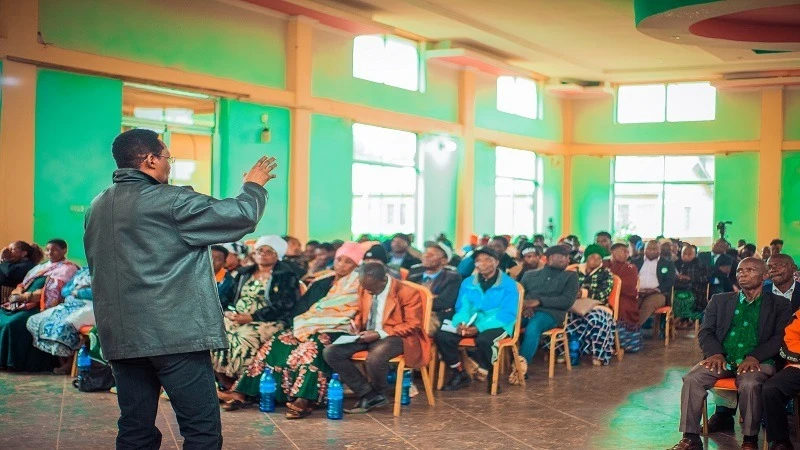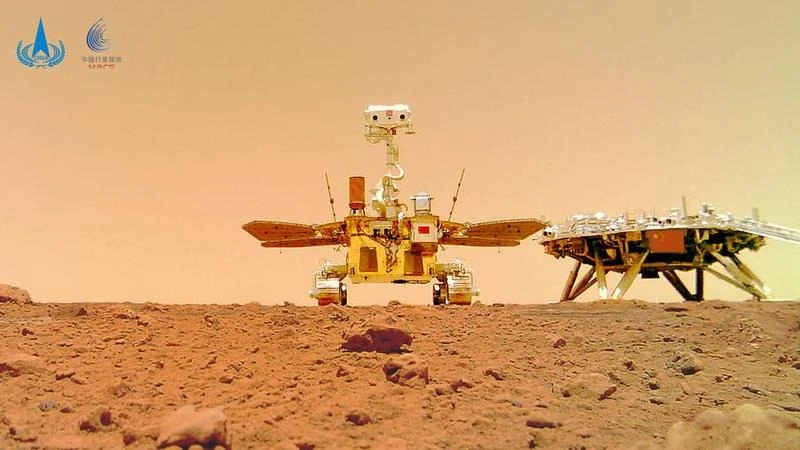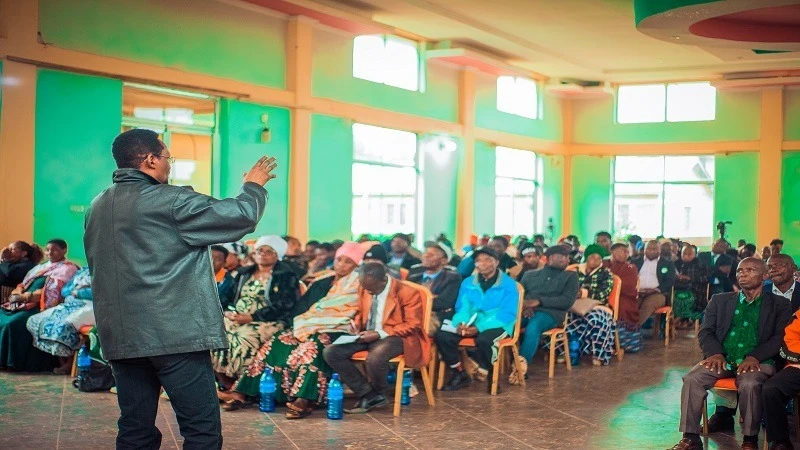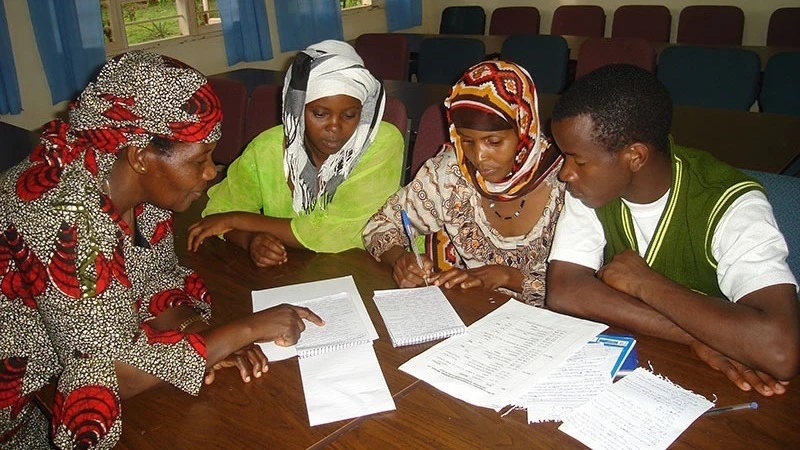Njombe’s smallholder farmers lead agroecology movement for sustainable and healthier farming

AGROECOLOGICAL farming combines scientific knowledge with indigenous practices to improve food production in ways that are sustainable, environmentally friendly, and socially responsible.
Unlike conventional agriculture, which heavily depends on synthetic fertilizers, chemical pesticides, and industrial seeds, agroecology emphasizes the use of natural resources, biodiversity, and community involvement.
Agroecology is more than just a farming technique—it’s a social, ecological, and economic movement. It promotes farmers' rights, environmental protection, and food sovereignty. It also offers long-term solutions to persistent global challenges such as hunger, poverty, and climate change.
Recently, smallholder farmers in Njombe region—members of the National Network of Smallholder Farmers in Tanzania (MVIWATA)—resolved to champion agroecological farming not only in their region but across the entire country. They recognize its many benefits and the urgent need for sustainable alternatives to industrial agriculture.
Speaking to The Guardian during MVIWATA regional general assembly held in Njombe Region recently—which brought together participants from Iringa, Mbeya, Ruvuma, Morogoro, and Mtwara—the smallholder farmers shared personal stories of how their lives have improved since adopting agroecology.
Laiton Msigwa, a farmer from Wanging’ombe district, reflected on how a lack of knowledge about proper fertilizer use led many smallholders to overuse harmful chemicals. He personally suffered losses in his avocado and potato farms due to the long-term effects of chemical-based farming.
Today, Msigwa has fully transitioned to agroecological farming and is already reaping the rewards. His avocados are healthier and now meet export standards that require chemical-free produce.
“I wish I had known about this farming system earlier. I faced so many challenges when I was using chemicals, and it was all due to a lack of awareness among us smallholder farmers. But now I see the benefits—my life has changed,” said Msigwa.
Venus Muhagama from Namtumbo District added that chemical farming has caused a sharp decline in the use of traditional seeds, forcing farmers to rely on expensive industrial seeds.
She explained that indigenous seeds are easier to preserve, can be passed down from one generation to the next, and require little to no additional cost. She urged Tanzanian farmers to prioritize agroecology for the sake of future generations.
Muhagama further emphasized that if agroecological farming were properly supported with favorable policies and national strategies, many smallholder farmers could improve both food security and household incomes.
Daudi Mkula, also from Wanging’ombe, said the time has come for farmers to stop depending on industrial inputs and return to natural methods—particularly the use of traditional seeds and organic fertilizers.
Unlike conventional farming, agroecology harnesses indigenous knowledge and biodiversity. According to Mkula, crops grown using agroecological methods are more resilient to climate stresses such as droughts and floods. The system also encourages crop diversity, which leads to better nutrition and food security.
Mkula called for more farmer education on agroecology, noting that the farmers who have adopted it are already experiencing tangible benefits—not only for soil health but also for their own livelihoods.
“Through MVIWATA, we’ve received training on agroecology, and it has transformed our understanding of farming. As smallholder farmers with limited capital, this knowledge is crucial. We can earn profits while reducing production costs,” Mkula explained.
He noted that agroecological farming involves using compost, manure, and plant mixtures as fertilizers, instead of industrial chemicals. Farmers also produce natural pesticides from plants, allowing them to reduce dependency on costly and sometimes harmful external inputs.
Gerieta Makao from Iringa District highlighted the long-term damage caused by conventional farming methods. While industrial agriculture may produce quick results, it depletes soil fertility over time. After just a few planting seasons, farmland becomes exhausted due to the overuse of synthetic fertilizers and pesticides.
“If practiced correctly, agroecology can produce good yields while preserving land for generations. Chemical overuse harms farmers by increasing health risks and driving up medical costs, all while reducing farming profits,” said Makao.
She warned about the flood of commercial seeds and chemical inputs now available on the market, noting that if not used properly, they can cause serious health hazards. Makao cited the case of a neighbor who developed cervical cancer, which doctors linked to long-term exposure to farm chemicals—both through direct contact and through contaminated food.
She urged fellow farmers to exercise caution when purchasing seeds and fertilizers, and to embrace safer, natural alternatives.
Maria Kuboka from Mufindi shared how agroecological farming has improved both her health and her economic security. She eats food directly from her own farm, which she trusts is safe and free from harmful chemicals.
“Agroecology also protects the environment. I learned this after training in methods like intercropping, agroforestry, and mulching. These practices prevent soil erosion, retain moisture, and help farms withstand drought, strong winds, and unpredictable weather,” said Kuboka.
Commenting on the broader issue, MVIWATA Executive Director Stephen Ruvuga said agroecology is now one of the organization’s central strategies. It has become a key part of MVIWATA’s long-term plans because of its importance for farmers, communities, and the environment.
Ruvuga explained that despite global recognition of agroecology, Tanzania’s 2013 national agriculture policy still favours industrial-input-based farming. This leaves smallholder farmers trapped in a cycle of dependency on expensive seeds, fertilizers, and pesticides.
He warned that any system forcing farmers to depend on external inputs undermines their freedom and security.
“Many developed countries are now returning to agroecology because it has proven to produce healthier, poison-free food. It’s time we also support this system to protect our health, our soil, and our food sovereignty,” said Ruvuga.
He added that smallholder farmers have increasingly become targets for agribusiness. When they can’t afford costly inputs, they are often forced into exploitative loans, pushing them further into poverty.
“Input suppliers see smallholder farmers as a guaranteed market for their products. But this system must change—and transformation doesn’t happen overnight. It requires a gradual, systemic shift,” Ruvuga stressed.
Top Headlines
© 2025 IPPMEDIA.COM. ALL RIGHTS RESERVED

























